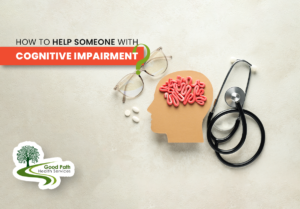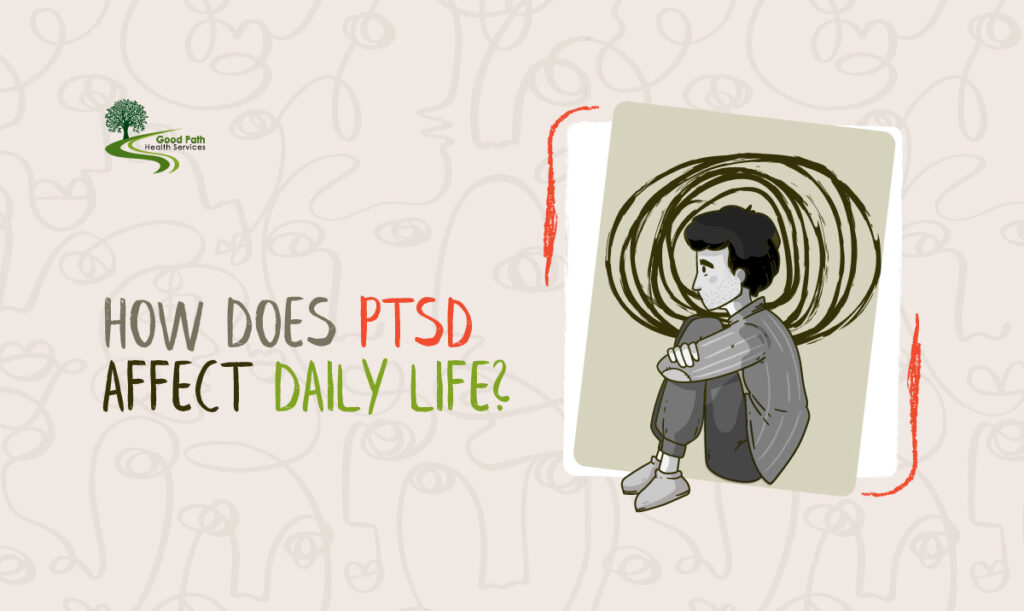
Cognitive impairment can be a frightening experience for those diagnosed and their immediate family.
Understanding the complications of this condition calls for more than just insight; it calls for practical solutions that meet specific needs and an unconditional emotional support.
Although difficulties may be overwhelming, with the right support system and a series of strategies, the seemingly mountainous task can transform into an approachable hill.
For the caregivers and family members thrust into this role, it’s a process of learning, adapting, and most importantly, providing unwavering care.
Delving into key aspects of helping loved ones going through cognitive impairment is the main focus of this blog.
From understanding the intricacies of cognitive impairment to useful caregiving techniques, and building a strong support base, we would like offer a comprehensive guide for caregivers doing their best for their beloved.
The Nature of Cognitive Impairment
Cognitive impairment covers various conditions that make thinking more challenging.
This umbrella term includes Alzheimer’s disease, dementia or traumatic brain injuries (TBIs).
Impacts vary greatly such as memory loss, personality changes or behaviors and struggling with daily routines.
To spot the moments when your beloved one is suffering from a cognitive disorder is only the first step towards assisting them fully.
Related Read: How Fast Does Mild Cognitive Impairment Progress?
Definition and Types
Cognitive impairment is when cognitive abilities decline and affect your daily life. Common types include:
- Alzheimer’s Disease: This is a progressive form of dementia that affects memory, thinking and behavior.
- Vascular Cognitive Impairment: Usually caused by a stroke, it’s the second most common cause of dementia after Alzheimer’s.
- Lewy Body Disease: This is a form of dementia that causes a gradual decrease in mental abilities.
Visible Signs and Symptoms
It is highly important to identify early symptoms in order to provide timely interventions and care. Be on the lookout for:
- Memory Loss: Experiencing memory loss regularly or forgetting important information such as dates.
- Decreased Concentration: Struggling to stay on task or follow conversations.
- Problems with language: Such as difficulty finding words, going off topic during thoughts or even repeating words many times over.
Providing Support
Support comes in many forms.
Caring for someone with cognitive impairment does not just involve practical issues alone; it must also include emotional assistance and safety provision.
1. Emotional Support
Empathy is the currency of emotional support.
Giving your loved one the time and patience to express their frustrations and fears is essential.
Radiating a positive yet realistic outlook can also help ease their anxieties.
2. Communication
Effective communication is a two-way street. It involves:
- Active Listening: Paying full attention and responding appropriately.
- Using Simple Language: Avoiding slang or complicated sentences can improve understanding.
- Non-Verbal Cues: Such as touch or a smile can also convey support and comfort.
3. Home Environment
A familiar environment that is calm and secure can relieve stress on someone with cognitive impairment.
Simple alterations such as decluttering, labeling important items, and ensuring the space is well-lit can make a world of difference.
Practical Caregiving Tips
The practical side of caregiving involves several components that, when managed effectively form the backbone of daily support.
1. Daily Routines and Personal Care
People suffering from cognitive impairment may find it comforting to have a system of regular habits.
These times should be set for eating, napping and any appointments.
2. Activities of Daily Living (ADLs)
Assisting with ADLs could become part of your daily caregiving duties.
This involves taking care of personal hygiene, dressing, eating, and staying healthy.
Remember to be nice and patient.
3. Managing Medications and Healthcare Appointments
Keeping meds organized and managing healthcare appointments helps maintain the well-being of those with cognitive impairment.
Using pill organizers and setting reminders can really help out as well!
4. Creating a Support Network
It’s important to understand that you can’t do it all when taking care of yourself and your caregiving recipient.
Having a support network with family, friends, and professionals can help lighten the load and give you more resources.
5. Use of Professional Assistance
They have more skill and experience in offering advice that you might not know about such as doctors or nurses, social workers or therapists who care for or work with people with memory issues.
Do not hesitate to ask for aid or guidance from experienced individuals in these cases of dementia especially as it relates to losing memory at fast rate.
6. Family and Friends
The use of a network of caregivers can help prevent caregiver burnout and allow for a more comprehensive approach to care.
Many hands make light work, as the saying goes.
7. Online and Local Resources
There are plenty of resources out there, whether in your community or online.
They offer info, emotional support and practical tips for handling cognitive impairment.
Consider checking out our community resources page.
Self-Care for Caregivers
When looking after someone with cognitive impairment, it’s common to forget about taking care of yourself.
But self-care isn’t a luxury – it’s a must.
1. Look After Your Own Health
Make sure that you eat well, exercise and get enough rest – these can help you maintain the energy and strength that’s needed to care for your loved one.
2. Taking Respite
Regular breaks are essential.
It can be a brief walk, a day off, or simply a few hours to yourself – respite care can recharge you and also avoid caregiver fatigue.
3. Seeking Emotional Support
It can be helpful to vent or chat with a pro or a support group so don’t overlook it. It can bring you relief and clarity.
For support please reach out to us at Good Path Health Services.
The Conclusion
It’s not easy to cope with cognitive impairment, but patience, compassion, and practical strategies offer a way out.
By familiarizing oneself with the condition, providing consistent support, designing a nice home setting, establishing daily schedules and creating a reliable assistance network, caregivers and patients can make some progress.
Taking care of yourself is selfless. It ensures that the kind of care you give your loved one is more superiorly given than all other ways through which it is channelized.
In helping others we often find our own strength and endurance.
This discussion does not end here.
Your experiences, insights and questions go still further in enriching this support. So think of it as an open call to keep talking about those matters not only for yourselves but also for others who may face similar situations.
For those currently involved in caregiving please know that all your hard work goes unnoticed by us; however your dedication are beaming rays into the lives of the people you take care of.
FAQ Section
How to talk to someone with cognitive impairment?
Use simple words, short sentences and speak calmly.
Make sure that one idea is communicated at a time.
What is a nursing care plan for cognitive impairment?
Includes activities to stimulate memory and cognition, manage behavior and support daily living tasks.
Live with a spouse with mild cognitive impairment – what to do?
- Practice patience.
- Create simple routines.
- Get support for both your spouse and yourself.
Is short-term memory loss a disability?
Yes if it severely impairs daily functioning then it can be recognized as a disability.
How to help an elderly parent with memory loss?
- Create a safe environment.
- Use reminders and lists.
- Encourage engagement in stimulating activities.
What are interventions for cognitive impairment?
- Cognitive exercises.
- Medication management.
- Dietary adjustments.
- Lifestyle changes to enhance brain health.
How to practice compassionate communication with the memory impaired?
- Listen attentively.
- Avoid correcting them.
- Use comforting words.
- Maintain a positive tone.



